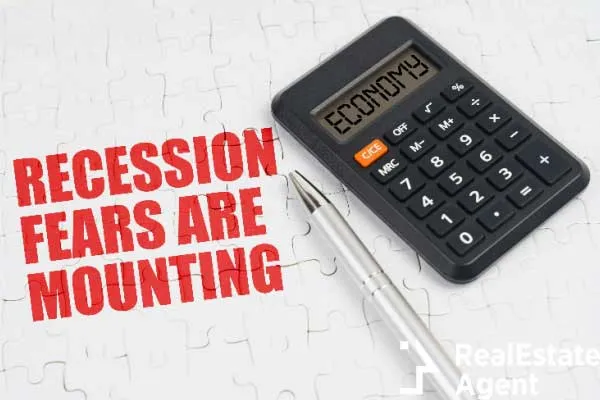 The history of our economy is cyclical. For this reason, we must focus on past instances of recession explained to understand the current dire straits the US economy is facing. The present article will shed light on the causes and effects of recession throughout our history and the various effects of recession on business.
The history of our economy is cyclical. For this reason, we must focus on past instances of recession explained to understand the current dire straits the US economy is facing. The present article will shed light on the causes and effects of recession throughout our history and the various effects of recession on business.
We can’t discuss recession without mentioning its “sidekick,” inflation. Once the consumers’ purchasing power drops significantly, prices kick into high gear as businesses try to counterbalance their reduced income. However, you’ll be the “butt of the joke” as your monthly wage won’t cover the extra expenses.
Recession explained
Recession and inflation indicate a decline in a country’s overall economy, more precisely, its economic activities lasting over three months. One of the leading causes and effects of recession and inflation is a universal drop in the population’s spending habits generated by a financial setback, such as the housing crisis.
An international trade shock, a sudden decrease or increase of commodity or service supplies, or the bursting of the legendary economic bubble will also contribute to the upsurge of recession. Did you know that the COVID-19 pandemic affected some major American states, such as California, Hawaii, and Nebraska, pushing them on the edge of a recession in 2020?
The effects of recession on business
When a country’s economy is booming, citizens will spend more money, and, as a result, its economy will also expand. This can be tracked in the gross domestic product (GDP) increase. As opposed to this, the decrease in GDP foretells an economic downturn or recession.
Suppose a recession lasts for an extensive period. The adverse economic climate triggers a series of negative effects of the recession, also felt in the real estate market. In that case, we call it a depression, the most infamous being the Worldwide economic depression (1929–1939.)
What are the negative effects of recession?
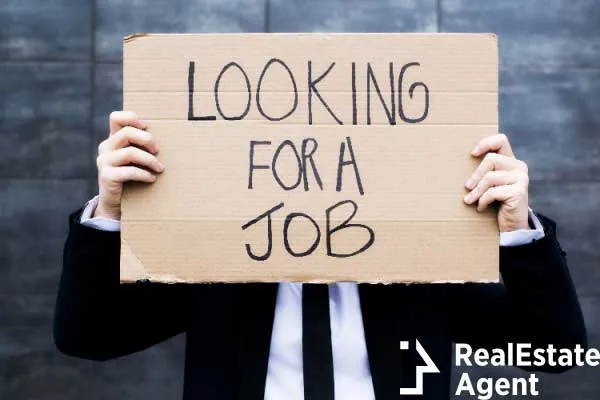 First, recession affects the job market as job losses occur, and the unemployment rate goes through the roof. The manufacturing industry would slow down. The halt of business expansion is another negative effect of recession. Consumer spending drops, and real income declines.
First, recession affects the job market as job losses occur, and the unemployment rate goes through the roof. The manufacturing industry would slow down. The halt of business expansion is another negative effect of recession. Consumer spending drops, and real income declines.
The ripple effects of recession on the job market during a pandemic
During a pandemic, to make things worse, general lockdowns can come into effect, leading to the GDP’s fall. Shops, restaurants, and hospitality venues were shut down nationwide in 2020. For instance, you can only imagine how tourist paradises suffered during the 2020 lockdown; take the hits sustained by the Miami job market. The situation can spiral out of control in the blink of an eye as businesses are forced to shut down to the general public.
Suppose you’re concerned about losing your job in case another economic setback hits the States. Then, we recommend a professional rebranding and choosing a recession-proof career in 2023. Also, you can take shelter from financial hardships by moving to recession-proof cities.
What are the positive effects of recession?
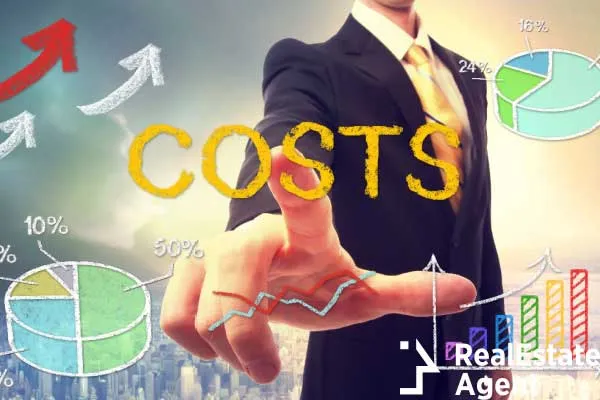 Paradoxically, recession and inflation can result in some benefits as well. Some businesses will thrive. Bankruptcy attorneys, maintenance services, the sweets industry, bars and pubs, and grocery stores reported growing clientele during a recession.
Paradoxically, recession and inflation can result in some benefits as well. Some businesses will thrive. Bankruptcy attorneys, maintenance services, the sweets industry, bars and pubs, and grocery stores reported growing clientele during a recession.
Another positive effect of recession is improving companies’ efficiency because they need to control and discard excess inventory and reduce expenses. Everyday expenses will be balanced as businesses must cut prices so consumers can afford their products and services. However, recession affects the average person. On the bright side, did you know you can apply these cost-saving practices to your household?
The real estate market and strong currencies will soar.
An economic depression will make us more creative and motivate us to invest our money during a recession smartly. Homes for sale can become more cost-effective. Since people consider real estate a foolproof investment, the housing market will boom in cities with great potential.
Moreover, one of the least-known positive effects of recession is that a state’s currency with a more stable economy will fly as high-interest rates regulate it. For this reason, the US Dollar soared in 2022 and reached parity with the European currency, the Euro. Many saw the American money prevailing over its stronger counterpart in the battle for the ages: the USD vs. the Euro. However, since 2022, the Dollar has slightly weakened as the FED paused interest rate hikes.
Was the USA in recession in 2022?
 Though the effects of recession have definitely been felt, the US economy wasn’t in a crisis in 2022. According to the Bureau of Economic Analysis, the real GDP (from consumption and investments) grew by a 2.9 percent yearly rate in the fourth quarter of 2022. Thus, apparently, fears of a short-term recession were unfounded.
Though the effects of recession have definitely been felt, the US economy wasn’t in a crisis in 2022. According to the Bureau of Economic Analysis, the real GDP (from consumption and investments) grew by a 2.9 percent yearly rate in the fourth quarter of 2022. Thus, apparently, fears of a short-term recession were unfounded.
Moreover, Bank of America representatives put our concerns to rest when declaring: “The economy continued to motor on” and “There’s more momentum in the economy at year-end than we thought.”
However, let’s look at all the ingredients of the economy! Thus, the bigger picture will become more balanced (and frankly, disheartening.) We should take a minor detour to see what analysts have forgotten to consider.
What drives the US economy?
The total GDP embraces all investments, total consumption, government spending, and net exports. 88 percent of real GDP (the economy’s backbone) covers two sectors, consumption and investment. The twelve percent comes from government spending and exports. The real GDP rise is due to the growth of the remaining twelve percent. Should we be worried that consumption and investment didn’t progress in Q4 but remained flat?
Historical patterns of recessions explained.
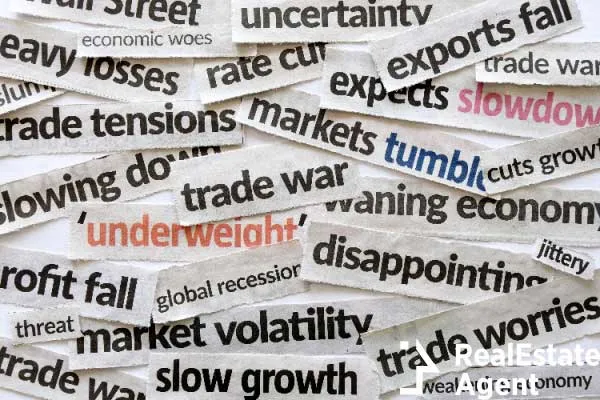 Looking at the US economy’s history, we can establish a pattern. A recession is born in three sectors:
Looking at the US economy’s history, we can establish a pattern. A recession is born in three sectors:
- The durable goods consumption sector (vehicles, tools, home appliances, etc.)
- The housing market (level of construction activity)
- The business equipment investment field
The three sectors make up roughly twenty percent of the economy. Yet, they are its heart and soul, meaning the broader economy follows their direction.
At the end of 2022, these sectors became smaller, and their growth slowed. Plus, they suffer from high inflation, increasing interest rates, and declining profits. For example, we’re dealing with a shortage of cost-effective housing in the States!
Before a recession kicks in, the housing and durable goods sectors are already in a downward spiral. In the third sector, businesses can pull back at first sight of failing sales. An executive will think twice before purchasing a new appliance.
The history of recessions and economic depressions in the United States
Recession is a natural part of the economic cycle. Since the United States has been economically active, Americans have dealt with minor and more intense recessions. However, not every recession came into existence the same way. For instance, the energy crisis fuelled the recession in the 1970s. Then, the housing market crash (the renowned bubble bursting) led to recessions in the late 2000s.
For this reason, many envisioned an impending doom due to the moderate housing market crash in 2021. One thing is sure. We must learn our lessons from past causes and effects of recession.
The earliest major recession in the American economy was recorded in 1797. It resulted from land speculation as the money supply was expanded. However, as in the housing market crash of 2006-2007, the housing bubble exploded soon.
The Great Depression in 1929-1938
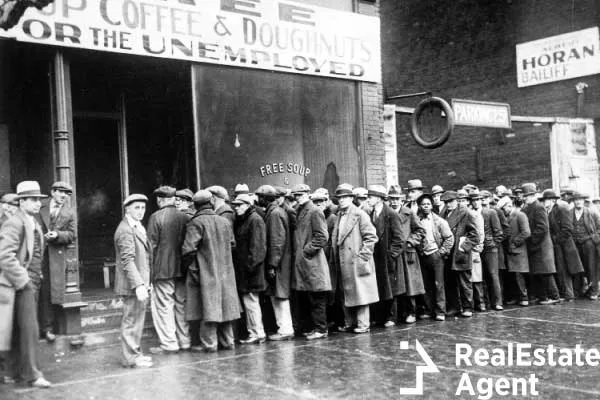 Falling stock prices (the Wall Street Crash of 1929), bank failures, draught, and uncontrolled mass production caused the most noteworthy economic crisis to this day. People formed long lines on the streets to get food and pray for a job. Among the many negative effects of recession, the economic downturn resulted in the destruction of life savings and countless businesses going bankrupt.
Falling stock prices (the Wall Street Crash of 1929), bank failures, draught, and uncontrolled mass production caused the most noteworthy economic crisis to this day. People formed long lines on the streets to get food and pray for a job. Among the many negative effects of recession, the economic downturn resulted in the destruction of life savings and countless businesses going bankrupt.
In addition, the negative effects of recession peaked at an old-time record 25 percent unemployment rate (1933.) Thirdly, the Midwest suffered from a terrible ten-year drought and the ensuing Dust Bowl. In 1929, the Federal Reserve raised the interest rates. It continued with its policy even though the recession was in full bloom. The US designed a unique program called The New Deal which successfully picked up the fight against recession by massively investing in infrastructure.
The mini crises from the 1940s to the 1970s
The disarmament from World War II led to a mild recession in 1945. Then, the FED, suddenly and without a proper previous announcement, raised the interest rates in 1949. This recession lasted only eleven months, with a low rise in the unemployment rate reaching eight percent (in 2022, it was six percent.) After each demobilization from war, the US experienced a recession due to tightened monetary policy. The same happened after the Korean War in 1953, lasting roughly ten months.
The 1973-1975 recession
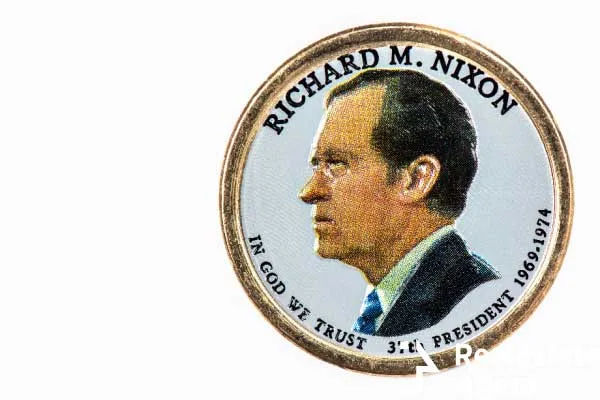 After the milder 1970 recession, the more severe 1973-75 crisis and inflation followed. The OPEC oil embargo triggered it as oil prices skyrocketed. President Nixon also had a fair share of the blame. Product prices were kept artificially high, so demand dropped.
After the milder 1970 recession, the more severe 1973-75 crisis and inflation followed. The OPEC oil embargo triggered it as oil prices skyrocketed. President Nixon also had a fair share of the blame. Product prices were kept artificially high, so demand dropped.
Moreover, wage controls were introduced, making monthly salaries way too high for employers to pay. Businesses were forced to lay off their workforce. Nixon also took America off the gold standard, contributing to the nosedive of the USD. The negative effects of recession were:
- Persistent high inflation.
- A nine percent unemployment rate.
- The GDP produced five quarters of negative numbers.
The 1980-1982 recessions
In fact, we’re talking about two consecutive recessions during this period. Inflation was high in most American cities, so the FED was forced to raise the interest rates. Then the Iranian oil embargo came into the picture, further aggravating the situation. What went down was that American oil supplies were reduced, thus increasing its price.
The effects of recession on business life soon became evident. Companies’ spending was cut down, and the GDP hit rock bottom (the worst being the Q2 1980 with -8 percent!). Plus, the eleven percent unemployment rate was particularly alarming.
The 2007-2009 Recession
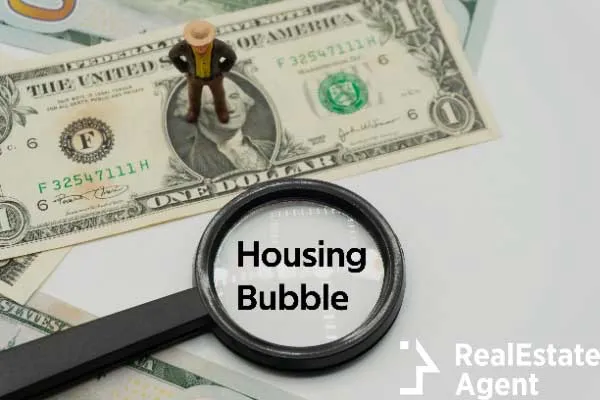 The US economy contracted spectacularly between December 2007 and June 2009. American banks adopted a seemingly favorable policy in which applicants could receive home loans even based on subprime or below-average credit scores. Everybody started purchasing real estate. Still, only some could keep up with their mortgage payments. A global bank credit crisis ensued in 2007.
The US economy contracted spectacularly between December 2007 and June 2009. American banks adopted a seemingly favorable policy in which applicants could receive home loans even based on subprime or below-average credit scores. Everybody started purchasing real estate. Still, only some could keep up with their mortgage payments. A global bank credit crisis ensued in 2007.
The GDP faced an 8.5 percent drop in Q4 2008, and the unemployment rate rose again to 10 percent as of October 2009.
Conclusion
In the long run, we will suffer from the negative effects of recession on business once we notice certain signs. For instance, the housing sector, the durable goods consumption sector, and the investment in the office appliances sector, arguably the economy’s three leading fields, contract, and their growth drops substantially. Since the Q4 statistics clearly underline this fact, we should prepare for inflation at home and the probability of a future recession.
History has taught us about the causes and effects of the recession. Though undoubtedly, some businesses are thriving during an economic crisis (health care, information technology, communication services, and consumer staples), the negative effects of recession most certainly outweigh the positive effects of recession
.
Are you worried about recession and inflation? Do you believe the US economy heading to another recession? How will the effects of recession on business manifest themselves this time? Your opinions are extremely important to us, so please share them in the comment section below! Please hit the like button and share this article with your friends on social!
















Have a question or comment?
We're here to help.